-
Executive Summary
-
Market Attractiveness Analysis 13
- Global PC As A Service (PCaaS) Market, By Component 13
- Global PC As A Service (PCaaS) Market, By Organization Size 14
- Global PC As A Service (PCaaS) Market, By Industry Vertical 14
-
Global PC As A Service (PCaaS) Market, By Region 15
-
Market Introduction
-
Definition 16
-
Scope Of The Study 16
-
Market Structure 16
-
Research Methodology
-
Research Process 17
-
Primary Research 18
-
Secondary Research 19
-
Market Size Estimation 19
-
Forecast Model 20
-
List Of Assumptions 21
-
Market Insights
-
Market Dynamics
-
Introduction 24
-
Drivers 25
- Rising Need To Reduce The Capital Expenditure (CapEx) And Operational Expenditure (OpEx) Among Enterprises 25
- Adoption Of Contract-Based Services And Solutions By SMEs 26
- Drivers Impact Analysis 26
-
Restraints 27
- Adoption Of BYOD And CYOD Policies 27
- Lack Of Technical Expertise And Security Concerns 27
- Restraints Impact Analysis 27
-
Opportunities 28
-
Increasing Adoption Of IoT 28
-
Market Factor Analysis
-
Value Chain Analysis 29
- Vendors/Service Providers 29
- Channel Partners/Value Added Sellers/ Integration Partners 30
- End Users 30
-
Porter’s Five Forces Model 31
- Threat Of New Entrants 31
- Bargaining Power Of Suppliers 32
- Threat Of Substitutes 32
- Bargaining Power Of Buyers 32
- Competitive Rivalry 32
-
Technological Trends 32
- Virtual Desktop Infrastructure 32
- Vendors Launch DaaS For Apple 32
-
Global PC As A Service (PCaaS) Market, By Component
-
Overview 33
- Hardware 33
- Solution (Software) 33
- Services 34
-
Global PC As A Service (PCaaS) Market, By Organization Size
-
Overview 37
- Large Enterprise 37
- Small And Medium Enterprise (SMEs) 37
-
Global PC As A Service (PCaaS) Market, By Industry Vertical
-
BFSI 39
-
Healthcare 39
-
IT & Telecom 39
-
Retail 39
-
Manufacturing 40
-
Education 40
-
Government 40
-
Others 40
-
Global PC As A Service (PCaaS) Market, By Region
-
Overview 42
-
North America 44
- US 48
- Canada 50
- Mexico 52
-
Asia-Pacific 54
- China 58
- India 60
- Japan 62
- Rest Of Asia-Pacific 64
-
Europe 66
- UK 70
- Germany 72
- Rest Of Europe 74
- France 76
-
Middle East And Africa 78
-
South America 82
-
Competitive Landscape
-
Competitive Overview 86
-
Vendor Share Analysis 87
-
Company Profiles
-
HP Development Company, LP 88
- Company Overview 88
- Financial Overview 89
- Products/Services/Solutions Offered 89
- Key Developments 90
- SWOT Analysis 90
- Key Strategies 91
-
Microsoft Corporation 92
- Company Overview 92
- Financial Overview 93
- Products/Services/Solutions Offered 93
- Key Developments 93
- SWOT Analysis 94
- Key Strategies 94
-
Dell Inc. 95
- Company Overview 95
- Financial Overview 96
- Products/Services/Solutions Offered 96
- Key Developments 97
- SWOT Analysis 97
- Key Strategies 98
-
Lenovo 99
- Company Overview 99
- Financial Overview 100
- Products/Services/Solutions Offered 100
- Key Developments 100
- SWOT Analysis 101
- Key Strategies 101
-
CompuCom Systems, Inc., (Office Depot, Inc.) 102
- Company Overview 102
- Financial Overview 102
- Products/Services/Solutions Offered 102
- Key Developments 103
- SWOT Analysis 103
- Key Strategies 103
-
Capgemini 104
- Company Overview 104
- Financial Overview 105
- Products/Services/Solutions Offered 105
- Key Developments 105
- SWOT Analysis 106
- Key Strategies 106
-
SHI International Corp. 107
- Company Overview 107
- Financial Overview 107
- Products/Services/Solutions Offered 107
- Key Developments 107
-
Dimension Data 108
- Company Overview 108
- Financial Overview 108
- Products/Services/Solutions Offered 108
- Key Developments 109
- SWOT Analysis 109
- Key Strategies 109
-
Softcat PLC 110
- Company Overview 110
- Financial Overview 110
- Products/Services/Solutions Offered 111
- Key Developments 111
- SWOT Analysis 111
- Key Strategies 111
-
Avaya Inc. 112
- Company Overview 112
- Financial Overview 113
- Products/Services/Solutions Offered 113
- Key Developments 113
- SWOT Analysis 114
- Key Strategies 114
-
-
List Of Tables
-
LIST OF ASSUMPTIONS 21
-
GLOBAL PC AS A SERVICE (PCAAS) MARKET, BY COMPONENT, 2022-2030 (USD MILLION) 35
-
GLOBAL PC AS A SERVICE (PCAAS) MARKET, BY SERVICE, 2022-2030 (USD MILLION) 36
-
GLOBAL PC AS A SERVICE (PCAAS) MARKET, BY ORGANIZATION SIZE, 2022-2030 (USD MILLION) 38
-
GLOBAL PC AS A SERVICE (PCAAS) MARKET, BY INDUSTRY VERTICAL, 2022-2030 (USD MILLION) 41
-
GLOBAL PC AS A SERVICE (PCAAS) MARKET, BY REGION, 2022-2030 (USD MILLION) 43
-
NORTH AMERICA: PC AS A SERVICE (PCAAS) MARKET, BY COUNTRY, 2020-2027 (USD MILLION) 44
-
NORTH AMERICA: PC AS A SERVICE (PCAAS) MARKET, BY COMPONENT, 2022-2030 (USD MILLION) 45
-
NORTH AMERICA: PC AS A SERVICE (PCAAS) MARKET, BY SERVICE, 2022-2030 (USD MILLION) 46
-
NORTH AMERICA: PC AS A SERVICE (PCAAS) MARKET, BY ORGANIZATION SIZE, 2022-2030 (USD MILLION) 46
-
NORTH AMERICA: PC AS A SERVICE (PCAAS) MARKET, BY INDUSTRY VERTICAL, 2022-2030 (USD MILLION) 47
-
US: PC AS A SERVICE (PCAAS) MARKET, BY COMPONENT, 2022-2030 (USD MILLION) 48
-
US: PC AS A SERVICE (PCAAS) MARKET, BY SERVICE, 2022-2030 (USD MILLION) 48
-
US: PC AS A SERVICE (PCAAS) MARKET, BY ORGANIZATION SIZE, 2022-2030 (USD MILLION) 49
-
US: PC AS A SERVICE (PCAAS) MARKET, BY INDUSTRY VERTICAL, 2022-2030 (USD MILLION) 49
-
CANADA: PC AS A SERVICE (PCAAS) MARKET, BY COMPONENT, 2022-2030 (USD MILLION) 50
-
CANADA: PC AS A SERVICE (PCAAS) MARKET, BY SERVICE, 2022-2030 (USD MILLION) 50
-
CANADA: PC AS A SERVICE (PCAAS) MARKET, BY ORGANIZATION SIZE, 2022-2030 (USD MILLION) 51
-
CANADA: PC AS A SERVICE (PCAAS) MARKET, BY INDUSTRY VERTICAL, 2022-2030 (USD MILLION) 51
-
MEXICO: PC AS A SERVICE (PCAAS) MARKET, BY COMPONENT, 2022-2030 (USD MILLION) 52
-
MEXICO: PC AS A SERVICE (PCAAS) MARKET, BY SERVICE, 2022-2030 (USD MILLION) 52
-
MEXICO: PC AS A SERVICE (PCAAS) MARKET, BY ORGANIZATION SIZE, 2022-2030 (USD MILLION) 53
-
MEXICO: PC AS A SERVICE (PCAAS) MARKET, BY INDUSTRY VERTICAL, 2022-2030 (USD MILLION) 53
-
ASIA-PACIFIC: PC AS A SERVICE (PCAAS) MARKET, BY COUNTRY, 2020-2027 (USD MILLION) 54
-
ASIA-PACIFIC: PC AS A SERVICE (PCAAS) MARKET, BY COMPONENT, 2022-2030 (USD MILLION) 55
-
ASIA-PACIFIC: PC AS A SERVICE (PCAAS) MARKET, BY SERVICE, 2022-2030 (USD MILLION) 56
-
ASIA-PACIFIC: PC AS A SERVICE (PCAAS) MARKET, BY ORGANIZATION SIZE, 2022-2030 (USD MILLION) 56
-
ASIA-PACIFIC: PC AS A SERVICE (PCAAS) MARKET, BY INDUSTRY VERTICAL, 2022-2030 (USD MILLION) 57
-
CHINA: PC AS A SERVICE (PCAAS) MARKET, BY COMPONENT, 2022-2030 (USD MILLION) 58
-
CHINA: PC AS A SERVICE (PCAAS) MARKET, BY SERVICE, 2022-2030 (USD MILLION) 58
-
CHINA: PC AS A SERVICE (PCAAS) MARKET, BY ORGANIZATION SIZE, 2022-2030 (USD MILLION) 59
-
CHINA: PC AS A SERVICE (PCAAS) MARKET, BY INDUSTRY VERTICAL, 2022-2030 (USD MILLION) 59
-
INDIA: PC AS A SERVICE (PCAAS) MARKET, BY COMPONENT, 2022-2030 (USD MILLION) 60
-
INDIA: PC AS A SERVICE (PCAAS) MARKET, BY SERVICE, 2022-2030 (USD MILLION) 60
-
INDIA: PC AS A SERVICE (PCAAS) MARKET, BY ORGANIZATION SIZE, 2022-2030 (USD MILLION) 61
-
INDIA: PC AS A SERVICE (PCAAS) MARKET, BY INDUSTRY VERTICAL, 2022-2030 (USD MILLION) 61
-
JAPAN: PC AS A SERVICE (PCAAS) MARKET, BY COMPONENT, 2022-2030 (USD MILLION) 62
-
JAPAN: PC AS A SERVICE (PCAAS) MARKET, BY SERVICE, 2022-2030 (USD MILLION) 62
-
JAPAN: PC AS A SERVICE (PCAAS) MARKET, BY ORGANIZATION SIZE, 2022-2030 (USD MILLION) 63
-
JAPAN: PC AS A SERVICE (PCAAS) MARKET, BY INDUSTRY VERTICAL, 2022-2030 (USD MILLION) 63
-
REST OF ASIA-PACIFIC: PC AS A SERVICE (PCAAS) MARKET, BY COMPONENT, 2022-2030 (USD MILLION) 64
-
REST OF ASIA-PACIFIC: PC AS A SERVICE (PCAAS) MARKET, BY SERVICE, 2022-2030 (USD MILLION) 64
-
REST OF ASIA-PACIFIC: PC AS A SERVICE (PCAAS) MARKET, BY ORGANIZATION SIZE, 2022-2030 (USD MILLION) 65
-
REST OF ASIA-PACIFIC: PC AS A SERVICE (PCAAS) MARKET, BY INDUSTRY VERTICAL, 2022-2030 (USD MILLION) 65
-
EUROPE: PC AS A SERVICE (PCAAS) MARKET, BY COUNTRY, 2020-2027 (USD MILLION) 66
-
EUROPE: PC AS A SERVICE (PCAAS) MARKET, BY COMPONENT, 2022-2030 (USD MILLION) 67
-
EUROPE: PC AS A SERVICE (PCAAS) MARKET, BY SERVICE, 2022-2030 (USD MILLION) 68
-
EUROPE: PC AS A SERVICE (PCAAS) MARKET, BY ORGANIZATION SIZE, 2022-2030 (USD MILLION) 68
-
EUROPE: PC AS A SERVICE (PCAAS) MARKET, BY INDUSTRY VERTICAL, 2022-2030 (USD MILLION) 69
-
UK: PC AS A SERVICE (PCAAS) MARKET, BY COMPONENT, 2022-2030 (USD MILLION) 70
-
UK: PC AS A SERVICE (PCAAS) MARKET, BY SERVICE, 2022-2030 (USD MILLION) 70
-
UK: PC AS A SERVICE (PCAAS) MARKET, BY ORGANIZATION SIZE, 2022-2030 (USD MILLION) 71
-
UK: PC AS A SERVICE (PCAAS) MARKET, BY INDUSTRY VERTICAL, 2022-2030 (USD MILLION) 71
-
GERMANY: PC AS A SERVICE (PCAAS) MARKET, BY COMPONENT, 2022-2030 (USD MILLION) 72
-
GERMANY: PC AS A SERVICE (PCAAS) MARKET, BY SERVICE, 2022-2030 (USD MILLION) 72
-
GERMANY: PC AS A SERVICE (PCAAS) MARKET, BY ORGANIZATION SIZE, 2022-2030 (USD MILLION) 73
-
GERMANY: PC AS A SERVICE (PCAAS) MARKET, BY INDUSTRY VERTICAL, 2022-2030 (USD MILLION) 73
-
REST OF EUROPE: PC AS A SERVICE (PCAAS) MARKET, BY COMPONENT, 2022-2030 (USD MILLION) 74
-
REST OF EUROPE: PC AS A SERVICE (PCAAS) MARKET, BY SERVICE, 2022-2030 (USD MILLION) 74
-
REST OF EUROPE: PC AS A SERVICE (PCAAS) MARKET, BY ORGANIZATION SIZE, 2022-2030 (USD MILLION) 75
-
REST OF EUROPE: PC AS A SERVICE (PCAAS) MARKET, BY INDUSTRY VERTICAL, 2022-2030 (USD MILLION) 75
-
FRANCE: PC AS A SERVICE (PCAAS) MARKET, BY COMPONENT, 2022-2030 (USD MILLION) 76
-
FRANCE: PC AS A SERVICE (PCAAS) MARKET, BY SERVICE, 2022-2030 (USD MILLION) 76
-
FRANCE: PC AS A SERVICE (PCAAS) MARKET, BY ORGANIZATION SIZE, 2022-2030 (USD MILLION) 77
-
FRANCE: PC AS A SERVICE (PCAAS) MARKET, BY INDUSTRY VERTICAL, 2022-2030 (USD MILLION) 77
-
MIDDLE EAST AND AFRICA: PC AS A SERVICE (PCAAS) MARKET, BY COMPONENT, 2022-2030 (USD MILLION) 78
-
MIDDLE EAST AND AFRICA: PC AS A SERVICE (PCAAS) MARKET, BY SERVICE, 2022-2030 (USD MILLION) 79
-
MIDDLE EAST AND AFRICA: PC AS A SERVICE (PCAAS) MARKET, BY ORGANIZATION SIZE, 2022-2030 (USD MILLION) 80
-
MIDDLE EAST AND AFRICA: PC AS A SERVICE (PCAAS) MARKET, BY INDUSTRY VERTICAL, 2022-2030 (USD MILLION) 81
-
SOUTH AMERICA: PC AS A SERVICE (PCAAS) MARKET, BY COMPONENT, 2022-2030 (USD MILLION) 82
-
SOUTH AMERICA: PC AS A SERVICE (PCAAS) MARKET, BY SERVICE, 2022-2030 (USD MILLION) 83
-
SOUTH AMERICA: PC AS A SERVICE (PCAAS) MARKET, BY ORGANIZATION SIZE, 2022-2030 (USD MILLION) 84
-
SOUTH AMERICA: PC AS A SERVICE (PCAAS) MARKET, BY INDUSTRY VERTICAL, 2022-2030 (USD MILLION) 85
-
-
List Of Figures
-
MARKET SYNOPSIS 12
-
MARKET ATTRACTIVENESS ANALYSIS: GLOBAL PC AS A SERVICE (PCAAS) MARKET 13
-
GLOBAL PC AS A SERVICE (PCAAS) MARKET ANALYSIS BY COMPONENT, 2020-2027 (USD MILLION) 13
-
GLOBAL PC AS A SERVICE (PCAAS) MARKET ANALYSIS BY ORGANIZATION SIZE, 2020-2027 (USD MILLION) 14
-
GLOBAL PC AS A SERVICE (PCAAS) MARKET ANALYSIS BY INDUSTRY VERTICAL, 2020-2027 (USD MILLION) 14
-
GLOBAL PC AS A SERVICE (PCAAS) MARKET ANALYSIS BY REGION, 2020 (%) 15
-
GLOBAL PC AS A SERVICE (PCAAS) MARKET: MARKET STRUCTURE 16
-
RESEARCH PROCESS OF MRFR 17
-
TOP DOWN & BOTTOM UP APPROACH 20
-
NORTH AMERICA MARKET SIZE & MARKET SHARE BY COUNTRY (2020 VS 2027) 22
-
ASIA-PACIFIC MARKET SIZE & MARKET SHARE BY COUNTRY (2020 VS 2027) 22
-
EUROPE MARKET SIZE & MARKET SHARE BY COUNTRY (2020 VS 2027) 23
-
DROC ANALYSIS OF GLOBAL PC AS A SERVICE (PCAAS) MARKET 24
-
TOP FACTORS LEADING TO IT BUDGET INCREASES IN 2019 25
-
DRIVERS IMPACT ANALYSIS: PC AS A SERVICE (PCAAS) MARKET 26
-
RESTRAINTS IMPACT ANALYSIS: PC AS A SERVICE (PCAAS) MARKET 27
-
IOT DEVICES CONNECTED IN 2020 AND 2025 28
-
VALUE CHAIN: GLOBAL PC AS A SERVICE (PCAAS) MARKET 29
-
GLOBAL PC AS A SERVICE (PCAAS) MARKET, BY COMPONENT, 2022-2030 (USD MILLION) 35
-
GLOBAL PC AS A SERVICE (PCAAS) MARKET, BY SERVICE, 2022-2030 (USD MILLION) 35
-
INCREASE IN IT REVENUE BY ORGANIZATION SIZE IN NORTH AMERICA AND EUROPE 37
-
GLOBAL PC AS A SERVICE (PCAAS) MARKET, BY ORGANIZATION SIZE, 2022-2030 (USD MILLION) 38
-
GLOBAL PC AS A SERVICE (PCAAS) MARKET, BY INDUSTRY VERTICAL, 2022-2030 (USD MILLION) 41
-
GLOBAL PC AS A SERVICE (PCAAS) MARKET, BY REGION, 2022-2030 (USD MILLION) 42
-
NORTH AMERICA: PC AS A SERVICE (PCAAS) MARKET, BY COUNTRY, 2020 – 2027 (USD MILLION) 44
-
NORTH AMERICA: PC AS A SERVICE (PCAAS) MARKET, BY COMPONENT, 2022-2030 (USD MILLION) 45
-
NORTH AMERICA: PC AS A SERVICE (PCAAS) MARKET, BY SERVICE, 2022-2030 (USD MILLION) 45
-
NORTH AMERICA: PC AS A SERVICE (PCAAS) MARKET SHARE, BY ORGANIZATION SIZE, 2022-2030 (USD MILLION) 46
-
NORTH AMERICA: PC AS A SERVICE (PCAAS) MARKET, BY INDUSTRY VERTICAL, 2022-2030 (USD MILLION) 47
-
ASIA-PACIFIC: PC AS A SERVICE (PCAAS) MARKET, BY COUNTRY, 2020 – 2027 (USD MILLION) 54
-
ASIA-PACIFIC: PC AS A SERVICE (PCAAS) MARKET, BY COMPONENT, 2022-2030 (USD MILLION) 55
-
ASIA-PACIFIC: PC AS A SERVICE (PCAAS) MARKET, BY SERVICE, 2022-2030 (USD MILLION) 55
-
ASIA-PACIFIC: PC AS A SERVICE (PCAAS) MARKET SHARE, BY ORGANIZATION SIZE, 2022-2030 (USD MILLION) 56
-
ASIA-PACIFIC: PC AS A SERVICE (PCAAS) MARKET, BY INDUSTRY VERTICAL, 2022-2030 (USD MILLION) 57
-
EUROPE: PC AS A SERVICE (PCAAS) MARKET, BY COUNTRY, 2020 – 2027 (USD MILLION) 66
-
EUROPE: PC AS A SERVICE (PCAAS) MARKET, BY COMPONENT, 2022-2030 (USD MILLION) 67
-
EUROPE: PC AS A SERVICE (PCAAS) MARKET, BY SERVICE, 2022-2030 (USD MILLION) 67
-
EUROPE: PC AS A SERVICE (PCAAS) MARKET SHARE, BY ORGANIZATION SIZE, 2022-2030 (USD MILLION) 68
-
EUROPE: PC AS A SERVICE (PCAAS) MARKET, BY INDUSTRY VERTICAL, 2022-2030 (USD MILLION) 69
-
MIDDLE EAST AND AFRICA: PC AS A SERVICE (PCAAS) MARKET, BY COMPONENT, 2022-2030 (USD MILLION) 78
-
MIDDLE EAST AND AFRICA: PC AS A SERVICE (PCAAS) MARKET, BY SERVICE, 2022-2030 (USD MILLION) 79
-
MIDDLE EAST AND AFRICA: PC AS A SERVICE (PCAAS) MARKET SHARE, BY ORGANIZATION SIZE, 2022-2030 (USD MILLION) 79
-
MIDDLE EAST AND AFRICA: PC AS A SERVICE (PCAAS) MARKET, BY INDUSTRY VERTICAL, 2022-2030 (USD MILLION) 80
-
SOUTH AMERICA: PC AS A SERVICE (PCAAS) MARKET, BY COMPONENT, 2022-2030 (USD MILLION) 82
-
SOUTH AMERICA: PC AS A SERVICE (PCAAS) MARKET, BY SERVICE, 2022-2030 (USD MILLION) 83
-
SOUTH AMERICA: PC AS A SERVICE (PCAAS) MARKET SHARE, BY ORGANIZATION SIZE, 2022-2030 (USD MILLION) 83
-
SOUTH AMERICA: PC AS A SERVICE (PCAAS) MARKET, BY INDUSTRY VERTICAL, 2022-2030 (USD MILLION) 84
-
VENDOR SHARE ANALYSIS IN 2020 87
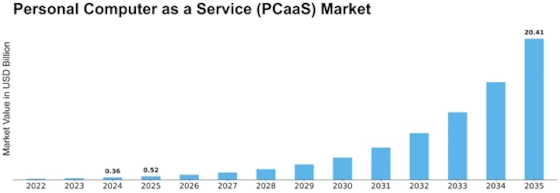


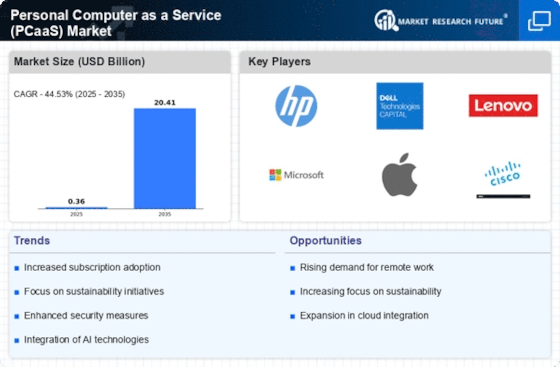



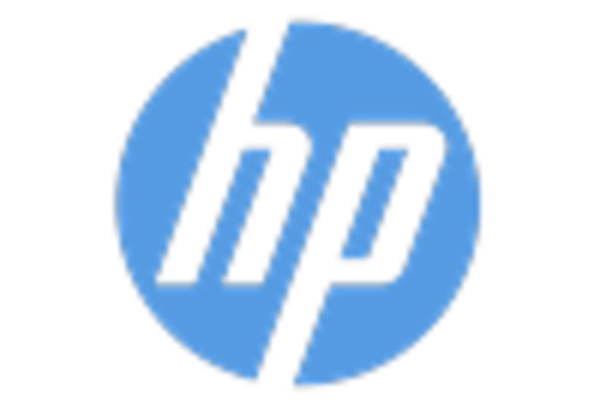
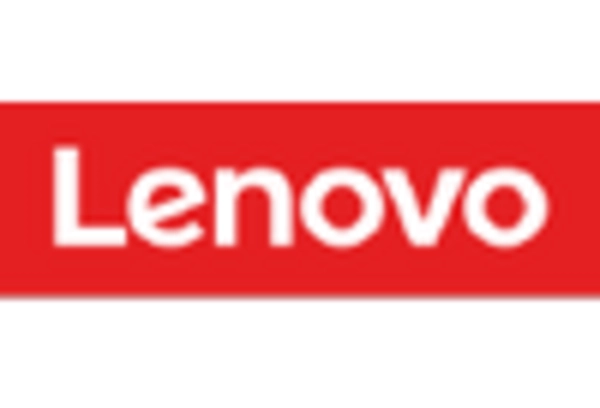
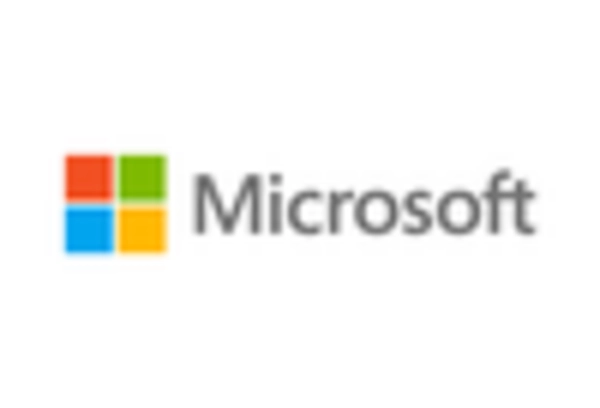









Leave a Comment